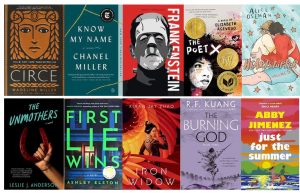I’ve got a couple friends who idolize a classmate’s chin. These girls share secret glances, make jokes, have entire conversations in mutual admiration of this man’s strong jawline. The guy doesn’t know, and if he did he would probably be flattered. But they don’t seem to know him very well: all they know is his chin. It’s all they look at. It seems to be all they care about. And I wonder why this doesn’t bother me more.
There are some things you’re not allowed to be attracted to, not right away. There’s a protocol. Everyone knows about the sleazy guys – girls too – who walk up from across the bar with eyes focused a little too low. If you’re not looking at a person’s face when you say hi, you’ve sent a pretty clear message about which parts are important to you. Sure, wandering eyes are allowed – inevitable, honestly – but in that first moment your gaze can say it all.
Eye contact is usually the right way to go. As you’re shooting the breeze at the bar or the coffee shop or bowling on a blind date, the expectation is visual connection. Locking eyes is how we show our interest, our attentiveness. If I’m looking you in the eyes I can’t be looking at or thinking about anything else. My-eyes-linked-to-yours is a sign of commitment to you, to what you’re saying.
But we allow for some wiggle room. After all, even a minute of straight eye contact gets tough. So you can wander a little, zone out, focus on to the nose or the mouth, which after all is the part that’s moving when you’re talking. Or you could look at the ears, hair, compliment them on their hair if it’s a good day, or even their chin. That chin, so well-defined, so strong. You focus more on the chin. Were they saying something? You can’t remember. And now we’re back to where we started.
We objectify the face. We’d like to pretend that it’s different, that it’s somehow nobler to be absorbed in an attractive countenance than attractive legs. Both are physical representations of wellbeing, genetic signals for a suitable, healthy mate, but we’re only allowed to talk about one without sounding like perverts. We don’t often hear groups of people discussing a stranger’s breasts – and when we do, we are horrified, offended, and we ought to be. But we make an exception for silky hair, or clear skin or perfect teeth or a strong chin or clear, bewitching eyes. These traits are also physical, sure, but of a different category. We are allowed to observe them, are allowed to make judgments on them and compliment them on first dates. As much as we try to downplay the physical aspect of attraction, it is a real part of any relationship, any interaction. It exists even when we’re not ogling someone’s crotch, even when we’re just looking them in the face.
Of course, the great hypocrisy is that I’d still prefer to be admired for my face than my body. Attraction isn’t exactly a scientific field, and everyone has their preferences. But I find myself drawn to the face, to the smile and the words and the eyes – it’s no secret I like eyes. I think it’s because they are so expressive, so small and yet so crucial to an interaction. But I’ll freely admit that I am not without fault, that – just like anyone else – I am capable of solely valuing somebody based on a single characteristic. And if I’m approaching a girl as a set of features to be admired, rather than a person, I shouldn’t be any better just for using the phrase “sparkling blue eyes” instead of “nice ass.” If I’m not looking to share, if I’m just looking to take, it doesn’t matter what I find appealing.
And maybe that’s the real difference. Maybe it’s a question of what you want. Maybe looking someone in the eyes is a way of saying that you’re listening, that your interaction will be a give-and-take. Maybe it’s a sign that you’re willing to stick around, get to know each other, get used to spending minutes or hours looking each other in the eyes. Maybe it’s the difference between calling someone “hot” and calling them “beautiful,” the difference between our traits and our identities.
Maybe truly looking someone in the eyes – past all the sparkles and down to the core – is a way of saying that I’m interested in who you are, and not just the body you’re running around in.





Be First to Comment